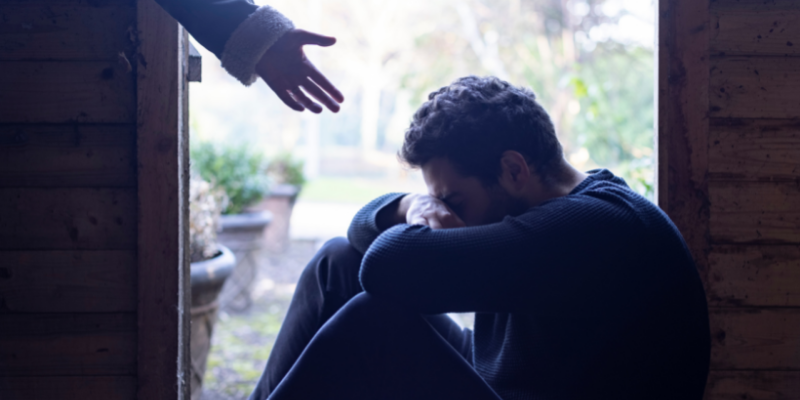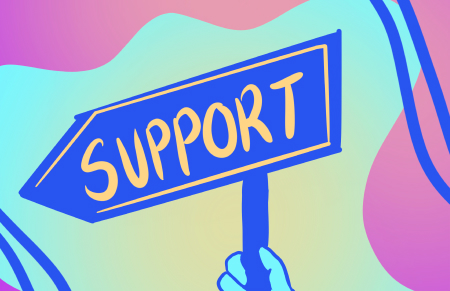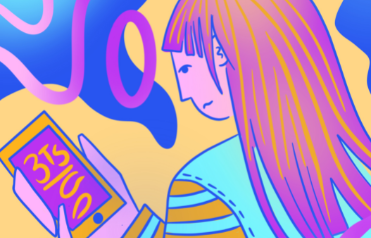If you are in need of urgent assistance:
- Call a helpline:
- Samaritans 24/7 on Freephone 116123
- Pieta 24/7 1800 247 247
- Contact Text About It: Text HELLO to 50808 for free 24/7 Crisis Text Support
- In the event of an emergency, call 999 or 112
- Talk to your GP to find a therapy that suits you.
- Visit our comprehensive list of crisis helplines and specialist support services here.

We all understand the meaning of the word suicide but we may not recognise that someone is feeling suicidal until it's too late. Learning to recognise signs in ourselves or in others and knowing what steps to take to get help is key to helping prevent a suicide death.
We hear the terms suicidal behaviour and suicidal ideation but what do they mean? Someone with suicidal ideation is having thoughts of suicide. They want to take their own life and they may have a clear plan to do so. Suicidal behaviour is any intentional action by a person that could result in a suicide death.
But everyone is different and has their own story. Many suicide deaths are planned, whilst others are carried out on impulse. However, there are some common signs that someone may be suicidal or at risk. Here we learn to recognise these signs and understand what steps to take next to get the help needed.
Know the Signs: common signs someone may be Suicidal
The following signs indicate suicidal thoughts or that a suicide plan is taking shape and urgent steps are needed to prevent a suicide death.
- Talking about Suicide or wanting to die - " I wish I was dead" or "I can't see any way out"'.
- Speaking of being a burden to others - "Everyone would be better off without me".
- Withdrawing from others, wanting to be left alone.
- Preoccupation with death, dying or violence.
- Loss of interest in people and things that would usually be of interest.
- Visiting or calling people to say goodbye.
- Giving away belongings, such as prized possessions.
- Making arrangements; tying up loose ends or getting affairs in order for no apparent reason.
- Appearing suddenly happier, calmer – sometimes a sign the person has made the decision to take their own life and is feeling relief.
- Obtaining the means or taking steps to find means to kill oneself e.g. stockpiling meds, buying rope or poisons.
Additional Warning Signs
Not everyone who feels suicidal has a mental health condition and not everyone with a mental illness feels suicidal. But some mental health conditions can contribute to suicidal thoughts and behaviours. So learn to recognise the following warning signs:
- Depression is a major risk factor for suicide. Learn to recognise the symptoms of clinical depression here.
- Displaying feelings of hopelessness, of being trapped in a situation or feeling there's no reason to live.
- Engaging in reckless behaviour such as dangerous driving, excessive drug or alcohol use.
- Changes in sleeping patterns - sleeping too much or too little.
- Displaying extreme mood swings.
- Being very anxious or agitated, particularly in combination with some of the signs above.
It's important to always take seriously any talk or signs of suicide.
Key Support Services if you or someone you know is feeling suicidal
Nowadays there are some excellent services available to help someone in distress or suicidal, with trained staff and volunteers who want to help. They can also help if you're concerned for another person.
Talking through concerns with someone who understands can be reassuring and can really help at a moment of crisis. It’s good to know you’re not alone and that other people have felt the same but have got through it.
Taking that first step to getting help can be the hardest step to take. But we should never be afraid to ask for the help that we deserve. Keep helpline numbers handy. Some key support services for are listed below and a full list of crisis and specialist support services can be accessed here.
Free 24 Hour Support service with therapeutic approach for people in suicidal distress, who engage in self-harm, are particularly low or who are bereaved by suicide. See website for branches.
- Freephone 24 hour Helpline: 1800 247 247
- Text HELP to 51444
- Call to book a therapy appoinment: 0818 111 126
- Web: pieta.ie
Longstanding & trusted, Samaritans volunteers provide confidential support, befriending and listening to those in personal crisis, 24 hours a day, 365 days a year. 21 branches across Ireland. Also provide a Self-Help App. to keep track of feelings, get coping recommendations & to stay safe in a crisis.
- Helpline: Freephone 116 123 (callers from Rep of Ireland & N Ireland)
- Email: jo@samaritans.ie (Rep. of Ire) jo@samaritans.org (N Ire) email response issues within 24 hours)
- Web: samaritans.org
Text About It is a confidential text messaging support service that provides immediate support for anyone going through a mental health or emotional crisis – big or small. Crisis volunteers are available 24/7 for anonymous text conversations and the service is free across all networks. Text About It is ideal if you rather text than speak to someone face to face or by phone. If the short code doesn't work on your network (An Post/48), you can still use the service by texting HELLO to 0861800280. Standard network message rates may apply to this 086 number.
- Available every day 24 hours a day.
- Text HELLO to 50808 to start the conversation
- 50808 Service is Free
- Standard message rates apply to 086 number only.
- Website: textaboutit.ie
Online mental health community providing support groups, peer support and one to one online counselling. Turn2me provide 6 free counselling sessions to anyone over 18 years living in Ireland. Website is a good resource of information on mental health issues. Contact: via form on the website
HUGG is the national suicide bereavement charity. Services include information & resources on grief after a suicide, telephone support, events & webinars, vital research & advocacy work and suicide bereavement support groups. HUGG support groups are led by trained volunteers with a lived experience of suicide loss and are available in-person or online, so the service is accessible wherever you are in the country. HUGG's website is a useful resource on grief management and for practical information in the aftermath of a suicide. Visit the HUGG website to learn more. Registered Charity Number (RCN): 20204480.
- Tel: +353 1 513 4048 (Monitored Answer Machine)
- Email: info@hugg.ie
- Web: HUGG.ie
.png?sfvrsn=ce7029fc_2)
.png?sfvrsn=ccbbd156_0)


.png?sfvrsn=209de2bc_0)
.png?sfvrsn=d665a45b_0)




